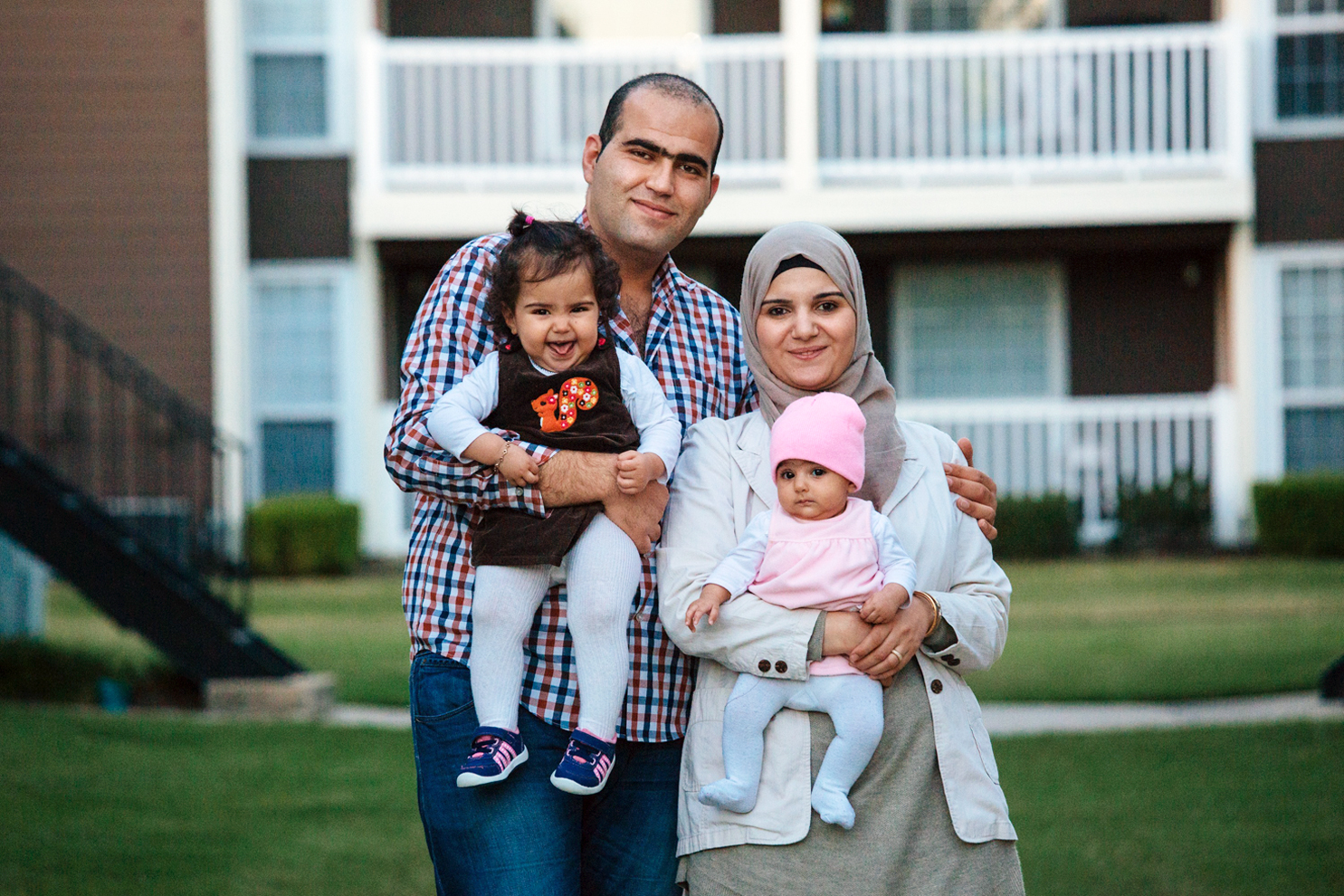
The fallout caught Faez al Sharaa by surprise. Shortly after terrorists attacked Paris, the 28-year-old Syrian refugee found his new life in Texas upended by the politics of national security. More than 30 governors, including the Lone Star State’s Greg Abbott, vowed to block the resettlement of new Syrians seeking asylum. “America prides itself on diversity,” al Sharaa says in his living room in a Dallas suburb, decorated with a golden plate inscribed with the shahada, the Muslim profession of faith. “Some are misinformed, or not informed, by what is going on in Syria.”
Al Sharaa decided to flee Syria in 2013 after nearly being killed while walking to work in the southern city of Dara’a. His daily commute was fraught with risk; clashes between President Bashar Assad’s forces and antigovernment insurgents had turned his neighborhood into a battlefield. Dissidents were disappearing. Children had been plucked off the streets and tortured.
On that Tuesday morning in Syria, soldiers pursuing a gunman detained al Sharaa, accused him of terrorism and held him at gunpoint with three others. “We felt death upon us,” he recalls. Then an old woman barreled into the street, begging the soldiers to spare al Sharaa and his counterparts, saying they were her family members and neighbors. He had never seen the woman before, but the stranger saved his life.
That night, al Sharaa reached out online to a group that smuggles Syrians into Jordan. The next morning, he and his wife Shaza darted through crumbling streets to meet the car that would carry them out of Syria. On the way, a missile crashed into a building mere feet away. “We could have been killed,” he says. Two days later, they arrived at the Zaatari refugee camp in Jordan. From there, Shaza’s family brought them to Amman, where Faez found a job.
Then they waited. For refugees, the vetting process is often a multiyear odyssey. The Sharaas registered with the U.N. refugee agency and began a set of background checks. At first Sweden seemed like an option. After a third interview, they were told they were headed to Finland. Finally, after nearly two years in limbo, they learned they were destined for Dallas.
They flew to Texas in February. It was al Sharaa’s first time on a plane. They landed with a baby daughter, born in Jordan, another on the way and little money or language skills. The U.S., which has admitted 2,200 Syrian refugees since 2011, provides fewer benefits than some European nations, and al Sharaa was daunted by the challenge. “I didn’t want to come to America,” he says.
Of the more than 4 million Syrians who have fled their homeland, al Sharaa is among the lucky ones. He found a job on the graveyard shift at Walmart, stocking shelves in the frozen-food section. He and Shaza are picking up English. Their daughters are healthy and happy; baby Sara, now 4 months, is an American citizen. Neighbors have been welcoming. Faez began to regard the U.S. creed of equality as reality, not just rhetoric.
But with fear of terrorism spreading and solutions in short supply, refugees have become scapegoats, he says, even though they are just seeking sanctuary from violence. Recent polls show that a majority of Americans oppose admitting more Syrian refugees. Gun-toting protesters gathered outside a mosque in a nearby suburb of Dallas. And Republican presidential front runner Donald Trump has promised to deport refugees like al Sharaa if he becomes President.
Six of al Sharaa’s family members, fellow refugees seeking asylum, will arrive in Dallas in December over Abbott’s objections. The state has sued the U.S. government to stop future resettlement of refugees in Texas, including his family. A few weeks ago, al Sharaa was laying long-term plans for a future in Texas. Now he has a simple message for his leery neighbors. “I want them to know the Syrian people are not terrorists,” he says. “We are against ISIS. We don’t support them. They are a criminal organization. Syrian citizens are the ones paying the price.”
More Must-Reads from TIME
- Cybersecurity Experts Are Sounding the Alarm on DOGE
- Meet the 2025 Women of the Year
- The Harsh Truth About Disability Inclusion
- Why Do More Young Adults Have Cancer?
- Colman Domingo Leads With Radical Love
- How to Get Better at Doing Things Alone
- Michelle Zauner Stares Down the Darkness
Write to Alex Altman / Dallas at alex_altman@timemagazine.com